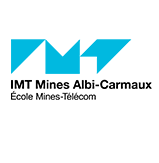- Back
- Location
- Anywhere
- Date Posted
- 1 Jun 2025

- Type
- PhD Project
- Anywhere
- 1 Jun 2025
Thermo Physico Mechanical Behaviour of Materials During Compaction Process

NOTE: this position listing has expired and may no longer be relevant!
Position Description
PROJECT SUMMARY – CONTEXT
Roller compaction / dry granulation is a continuum manufacturing process for agglomeration technique for particulate solids that are instable to heat and moisture. This process is a highly energy efficient process, as no heating or drying is needed. The process is composed of different unit operations. First, the particulate solid is compacted using a roller press in a ribbon that will be subsequently milled in granules using a milling system. The resulting granules, with the improved properties, can be employed then for compaction process. Recent works [1,2,3] showed that the powder deformation history through the compaction process leads to mechanical modifications of the intermediate products behaviours at different scales (ribbons, granules and compacts). This work, which was limited to the mechanical aspects, has provided a better understanding of the interaction between the primary particles, the process parameters. However, for material, which is sensitive to the ambient moisture and the increase of temperature during manufacturing process, understanding how ribbon-granule-compact properties and product stability can be impacted is a challenging task, particularly for applications in manufacturing high value-added products (such as pharmaceuticals and catalysts).
In this PhD work, the thermo-physico-mechanical behaviours of materials during compaction process will be investigated both by experiment, using intrusive and non-intrusive measurements, and with a new modelling approach using finite element analysis. The objective is to progress in understanding the moisture and thermal effects on the behaviour of sensitive materials under deformation.
The successful applicant will join the RAPSODEE, centre of Excellence for Research in Particulate Solids, Energy and Environment of the Graduate School of Engineering « Ecole des Mines » in Albi (France). We develop research in finite element modelling of particulate solids and forming processes including die and roller compaction.
CONTRACT
• The contract is for 3 years and the salary is 1786€/months.
• You have the possibility to increase your salary by giving training to engineering students (limited to 32 days maximum per year).
REFERENCES
[1] Alon Mazor et al., Powder technology, in Press (on line)
[2] Esnault et al., Chemical Engineering Science, 104 (2013) 717–726
[3] Wiedey R., Kleinebudde P., 2017, Powder Technology (in press).


